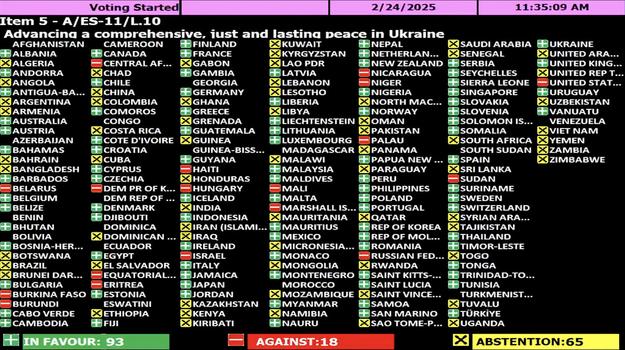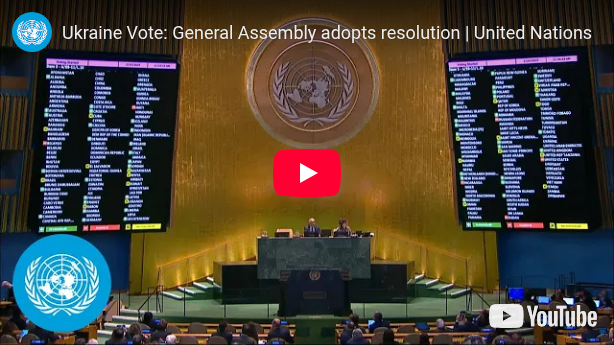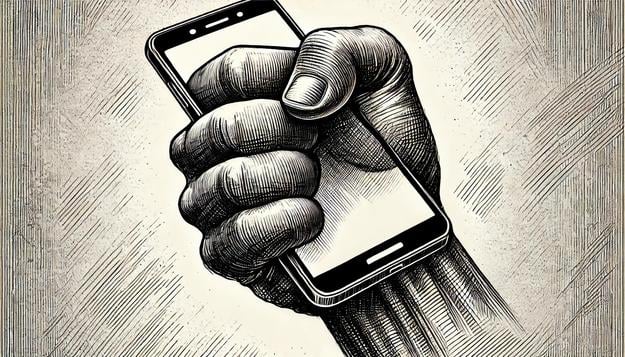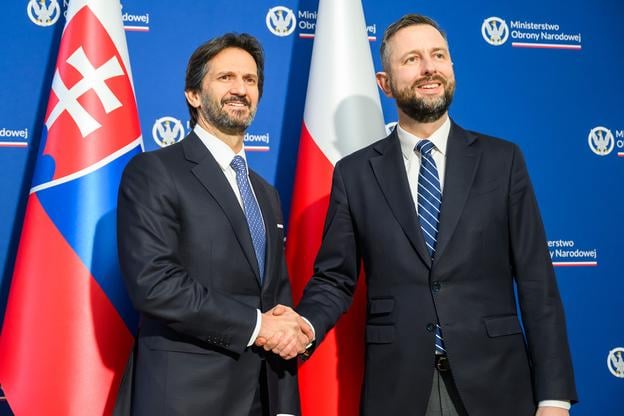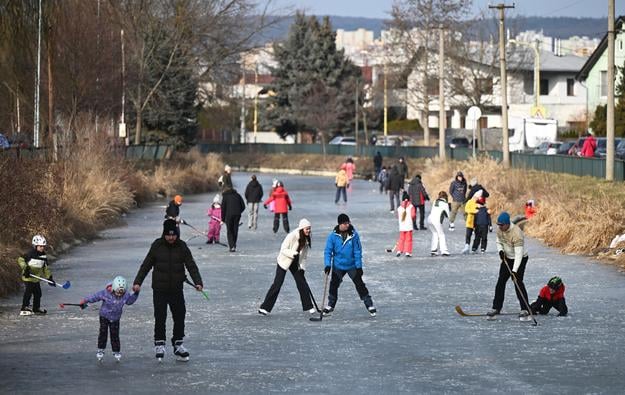Good to have you with us! Here is the latest edition of Today in Slovakia - all the top news from Tuesday, wrapped up in one place!
Slovakia backs UN resolutions on Ukraine
On Monday, February 24, Slovakia was among 93 states that supported draft resolutions on the war in Ukraine at the United Nations General Assembly. The resolutions, initiated by the United States and Ukraine on the third anniversary of Russia’s full-scale invasion of Ukraine, called for peace and an end to the conflict.
However, not everyone in Slovakia’s ruling coalition welcomed this decision – particularly the far-right Slovak National Party (SNS).
A stark contrast: The two resolutions were markedly different, even at first glance. Ukraine’s three-page resolution, titled “Advancing a Comprehensive, Just and Lasting Peace in Ukraine”, explicitly mentioned key terms such as “invasion”, “territorial integrity”, and “accountability” for war crimes. In contrast, the United States’ brief and vague resolution, “Path to Peace”, avoided such language. Despite their differences, both resolutions were adopted by 93 member states, though the US resolution was only passed after amendments proposed by the EU. In a surprising twist, the United States abstained from its own resolution following these amendments while rejecting Ukraine’s resolution – aligning itself with countries like Russia, Hungary, North Korea, and Belarus. Although General Assembly resolutions are not legally binding, they provide a global snapshot of positions on the war in Ukraine. The “Path to Peace” resolution – before amendments – was, however, adopted by the Security Council and is therefore considered binding.
Who represented Slovakia: Slovakia’s permanent representative to the UN, Ambassador Peter Hulényi, voted in favour of the resolutions under orders from Foreign Minister Juraj Blanár, a member of the pro-Russian Smer party. Blanár has been accused by some of embracing anti-Ukrainian and anti-Israeli conspiracy theories.
Why Slovakia voted in favour: According to the Foreign Ministry, the resolutions underline the importance of respecting international law, maintaining territorial integrity, and upholding the inviolability of borders - principles deemed fundamental for Slovakia, as reported by the SITA news agency. Interestingly, Slovakia’s vote did not mirror the stance of the new US administration, despite the ruling coalition’s recent shift towards supporting Donald Trump’s approach to achieving a swift peace settlement. Several Slovak government officials, including PM Robert Fico, have suggested that Ukraine may ultimately have to cede part of its territory. Even President Peter Pellegrini no longer talks about a just peace.
SNS demands an apology: The Slovak National Party (SNS) has urged Kremlin-friendly Prime Minister Fico to investigate why Slovakia voted for Ukraine’s resolution, which explicitly labels Russia as the aggressor. The party, led by pro-Russian politician Andrej Danko – who has made multiple visits to Moscow, including an official trip in January – issued a statement demanding Fico offer “an immediate apology for Slovakia’s vote at the UN”. SNS added: “It is crucial for Slovakia to maintain its position and a clear stance, just as Hungary does under Viktor Orbán’s leadership.” The party further suggested that Fico should follow the example of Serbian President Aleksandar Vučić, who apologised after Serbia backed a UN resolution proposed by Ukraine and European nations that condemned Russia’s aggression.
MORE STORIES FROM THE SLOVAK SPECTATOR
Playing Helena: A video game resurrects totalitarian Czechoslovakia.
Bratislava, meet your reputation: Irish-language course has some harsh words.
Slow-vakia: Slovakia takes gold – in bureaucratic red tape.
Fico’s CPAC performance: pro-Trump, anti-EU, and selectively truthful.
If you like what we are doing and want to support good journalism, buy our online subscription with no ads and a print copy of The Slovak Spectator sent to your home in Slovakia. Thank you.
NICE DRIVEWAY!
Bullies thrive when we let them
From Robert Fico’s political contortions to Donald Trump’s blatant victim-blaming, today’s strongmen thrive not on strength but on bullying those already beaten down. James Thomson dissects how leaders who play the victim while siding with the real predators are reshaping politics – and why standing up to them matters now more than ever.
THE GOSPEL ACCORDING TO THE (DEFENCE) MINISTER
“One day, the Russian will leave.”
Slovak and Polish defence ministers Robert Kaliňák and Władysław Kosiniak-Kamysz met in Warsaw on Monday to discuss closer cooperation in the defence industry. However, the talks were overshadowed by a remark from the Slovak minister when the state broadcaster STVR asked why Slovakia takes a different stance on military support for Ukraine compared to Poland.
Kaliňák reiterated that the Slovak government does not believe in a military solution to the conflict. He went further, stating that the ability to secure peace as quickly as possible is more important than a country’s defence, which only results in unnecessary casualties. To support his point, he turned to history: the Warsaw Pact invasion of Czechoslovakia in August 1968, which crushed democratic reforms and left dozens dead – despite the fact that the state did not resist the occupying forces.
“We experienced an invasion in 1968. If our parents had taken up arms against it, knowing full well they would lose, many of us would not be here today. We endured 20 years of oppression. We did not lose our identity. In the end, as always, the Russian leaves. And that always holds true,” the minister said, as quoted by the Slovak daily Sme.
Kaliňák was effectively telling Ukraine how it should respond to Russia – by yielding to the aggressor. It is worth noting that Soviet troops remained in Czechoslovakia for another two decades, many Slovaks chose to leave their homeland permanently, and the post-invasion “normalisation” era shaped the country’s political and social mindset for years to come.
As for what Slovakia was interested in during the talks in Poland: Polish-made Piorun man-portable air defence systems, boosting joint efforts in the production of 155mm ammunition, the possibility of co-producing an armoured personnel carrier based on Poland’s Rosomak with a Slovak turret, and Slovakia’s interest in acquiring South Korean K2 tanks, which Poland will manufacture in a modified version on its own territory. (TASR)
IN OTHER NEWS
Politically motivated court rulings and political decisions to ignore them are signs of the breakdown of the international legal system, Prime Minister Robert Fico has declared. He was responding to reports that Friedrich Merz, the winner of Germany’s parliamentary elections, intends to invite Israeli Prime Minister Benjamin Netanyahu to Germany, despite the International Criminal Court (ICC) having issued a warrant for his arrest. Fico dismissed the ICC as laughable and questioned whether it was time to abolish it. (Facebook/Robert Fico)
An explosion occurred on Tuesday morning at the Military and Technical Testing Institute in Záhorie, western Slovakia, injuring two people. According to media reports, the blast took place inside military equipment – specifically, a howitzer – during training.
The leader of the opposition party Progressive Slovakia, Michal Šimečka, has criticised Prime Minister Robert Fico for demanding that ministries compile a list of all grants and subsidies awarded to foundations, civic associations, and other organisations. In response, Fico reiterated on social media his claims that Šimečka’s relatives had received large sums from state and international subsidy schemes. According to Fico, this was the reason for Šimečka’s removal from his position as deputy speaker of parliament last year. (Facebook/Robert Fico)
The trial of former justice minister Gábor Gál, accused of accepting a bribe, began on Tuesday at the Specialised Criminal Court in Pezinok. The case is linked to the activities of the Slovak Land Fund. According to the indictment, Gál allegedly requested and accepted a €50,000 bribe in 2018. The defendant has pleaded not guilty. The main hearing is set to continue on Wednesday, February 26, with witnesses scheduled to testify. (TASR)
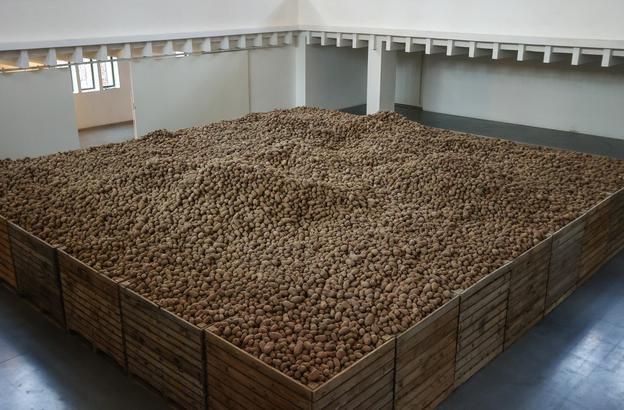
Ukraine continues to receive natural gas from Slovakia. On Tuesday, a shipment of 12 million cubic metres was delivered via the Vojany-Uzhhorod pipeline, with Wednesday’s volume set to exceed 10 million cubic metres. (SITA)
Slovakia’s gas storage levels have dropped to 46 percent, according to data from Gas Infrastructure Europe. At the start of the year, they were over 75 percent full. The decline is not limited to Slovakia, it is a trend seen across Europe. (TASR)
WEDNESDAY WEATHER BRIEFING: Expect a mostly cloudy to overcast day, with rain appearing in many areas and snow dusting the higher elevations. Umbrellas recommended! Fog may sneak in here and there. Temperatures will range from a chilly 3°C to a not-much-warmer 11°C, with a light breeze of up to 30 km/h. (SHMÚ)
PARTY TIME: February 26 is Viktor’s special day, so if you know one (we’ve got one in our office!), don’t forget to send him your warmest wishes. Všetko najlepšie!
Thank you for subscribing and reading. It means a lot to us.
P.S. If you have suggestions on how our news overview can be improved, you can reach us at editorial@spectator.sk.
Follow The Slovak Spectator on Facebook, LinkedIn and Instagram(@slovakspectator). For news from Slovakia in Ukrainian, click here or follow Novyny on Telegram, Facebook, and Instagram.


